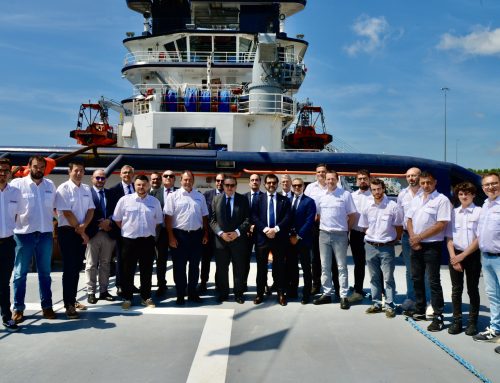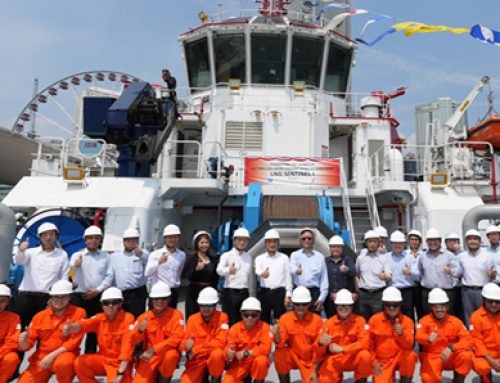Seville Port Authority collaborates in coordinating the port railway infrastructure
Guadalquivir Maritime Terminal is a joint operation between Boluda Lines and McAndrews, and they hold a 29-year contract to manage the port of Seville terminal
Guadalquivir Maritime Terminal (TMG) has reached an agreement with Mediterranean Shipping Company (MSC) to operate this Swiss multinational company’s railway, via a new rail service in the port of Seville. The media launch take places on 4 April, presented by Seville Port Authority president Manuel Gracia, MSC Spain headquarters manager Ignacio Ballester and Francisco Montes, manager of Boluda Maritime Terminals.
TMG is formed by Boluda Corporación Marítima’s comprehensive goods transport division Boluda Lines, and McAndrews, part of the CMA-CGM Group, and will jointly operate the port of Seville container terminal for the next 29 years. With a total area of 180,000m2, the container terminal includes the entire port infrastructure needed for containerized goods traffic: dock, ro-ro ramp, a three-lane railway terminal with capacity for 750m-long trains, and a container yard.
Seville Port Authority’s collaboration in the agreement facilitates smooth coordination of train operations in the port area, and makes efficient use of the existing railway line in Guadalquivir Maritime Terminal, a logistics platform located in the Batán dock of Seville’s inland port.
As a result of the agreement, the railway line will faciliate improved intermodal land connections with Guadalquivir Maritime Terminal, via both the railway line itself and the SE-30 ring road, which will reduce goods transit times.
This new MSC service is set to strengthen and consolidate Guadalquivir Maritime Terminal’s operations. The initial plan for the new railway service is to provide two freight trains per week with a cargo capacity of 56 TEUs each way. It will link the Atlantic Ocean routes directly with the center of Andalusia through the port of Sines in the south of Portugal.




